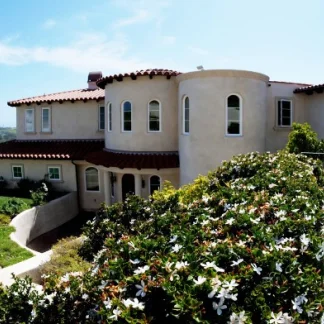Echo Malibu Treatment Center
Echo Malibu Treatment Center, located in Malibu, California, provides residentia...
LifeSync Malibu is a drug and alcohol rehab in Agoura Hills, California. They provide residential addiction treatment and mental health care in a luxury treatment setting.
LifeSync provides a mind, body, and spirit approach to heal dual diagnosis issues. Mental health issues, addiction, gambling, sex addiction, and any other compulsive order are addressed. Treatment consists of group and individual therapy, psychodrama, dialectical behavior therapy, mindfulness, emotional regulation, interpersonal skills, distress tolerance, medication-assisted therapy, and aftercare planning. This facility also offers exercise classes, yoga, chef-prepared meals, self-realization fellowship, 12-Step meetings, recreational activities, and psychoeducation. Aftercare planning is a big component of treatment, to ensure residents feel ready to move on and stay sober following treatment.
Contact us for more information: (866) 491-4426

Connect with LifeSync Malibu by calling their admissions team directly.
(866) 491-4426 Website Get DirectionsThe Joint Commission, formerly known as JCAHO, is a nonprofit organization that accredits rehab organizations and programs. Founded in 1951, the Joint Commision's mission is to improve the quality of patient care and demonstrating the quality of patient care.
Joint Commission Accreditation: Yes
Cognitive Behavioral Therapy (CBT) is a therapy modality that focuses on the relationship between one's thoughts, feelings, and behaviors. It is used to establish and allow for healthy responses to thoughts and feelings (instead of unhealthy responses, like using drugs or alcohol). CBT has been proven effective for recovering addicts of all kinds, and is used to strengthen a patient's own self-awareness and ability to self-regulate. CBT allows individuals to monitor their own emotional state, become more adept at communicating with others, and manage stress without needing to engage in substance abuse.
Research clearly demonstrates that recovery is far more successful and sustainable when loved ones like family members participate in rehab and substance abuse treatment. Genetic factors may be at play when it comes to drug and alcohol addiction, as well as mental health issues. Family dynamics often play a critical role in addiction triggers, and if properly educated, family members can be a strong source of support when it comes to rehabilitation.
Group therapy is any therapeutic work that happens in a group (not one-on-one). There are a number of different group therapy modalities, including support groups, experiential therapy, psycho-education, and more. Group therapy involves treatment as well as processing interaction between group members.
In individual therapy, a patient meets one-on-one with a trained psychologist or counselor. Therapy is a pivotal part of effective substance abuse treatment, as it often covers root causes of addiction, including challenges faced by the patient in their social, family, and work/school life.
Research clearly demonstrates that recovery is far more successful and sustainable when loved ones like family members participate in rehab and substance abuse treatment. Genetic factors may be at play when it comes to drug and alcohol addiction, as well as mental health issues. Family dynamics often play a critical role in addiction triggers, and if properly educated, family members can be a strong source of support when it comes to rehabilitation.
Group therapy is any therapeutic work that happens in a group (not one-on-one). There are a number of different group therapy modalities, including support groups, experiential therapy, psycho-education, and more. Group therapy involves treatment as well as processing interaction between group members.
In individual therapy, a patient meets one-on-one with a trained psychologist or counselor. Therapy is a pivotal part of effective substance abuse treatment, as it often covers root causes of addiction, including challenges faced by the patient in their social, family, and work/school life.
Group therapy is any therapeutic work that happens in a group (not one-on-one). There are a number of different group therapy modalities, including support groups, experiential therapy, psycho-education, and more. Group therapy involves treatment as well as processing interaction between group members.
In individual therapy, a patient meets one-on-one with a trained psychologist or counselor. Therapy is a pivotal part of effective substance abuse treatment, as it often covers root causes of addiction, including challenges faced by the patient in their social, family, and work/school life.
In individual therapy, a patient meets one-on-one with a trained psychologist or counselor. Therapy is a pivotal part of effective substance abuse treatment, as it often covers root causes of addiction, including challenges faced by the patient in their social, family, and work/school life.
Echo Malibu Treatment Center, located in Malibu, California, provides residentia...
Marshak Clinic, located in Malibu, California, is a residential alcohol and drug...
BNI Treatment Centers for Teens is a drug and alcohol rehab in Agoura Hills, Cal...
Passages Malibu is a luxury, 12 step-alternative drug and alcohol rehab for adul...